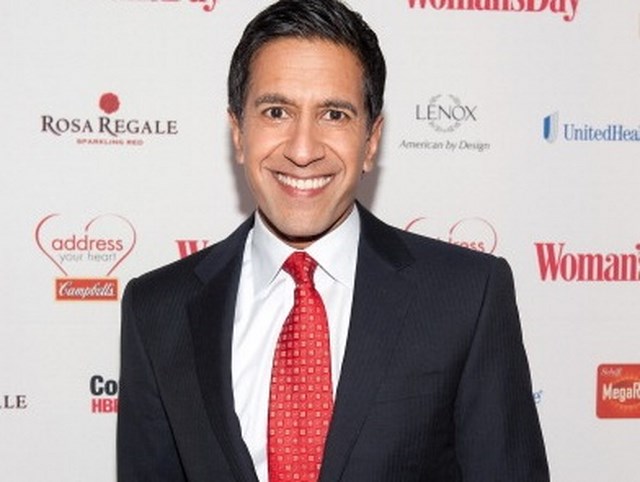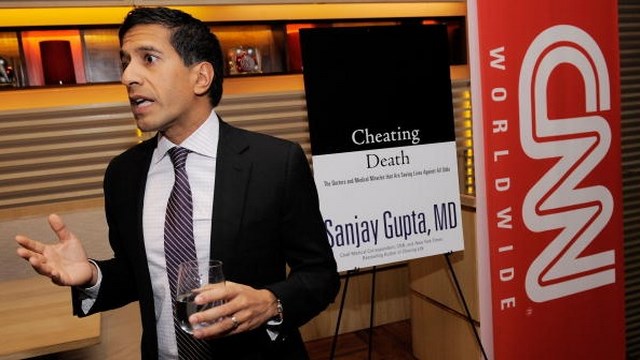
Sanjay Gupta (Getty Images)
American neurosurgeon and CNN chief medical correspondent Sanjay Gupta recently announced that he has changed his stance on medical marijuana and believes that the United States has a bias against using the drug for its beneficial qualities. He’s also revealing his research in a documentary called Weed on Sunday night on CNN. Here’s what you need to know.
1. Sanjay Gupta is a Neurosurgeon

(Getty Images)
Sanjay Gupta is an American neurosurgeon, an assistant professor of neurosurgery at Emory University School of Medicine and associate chief of the neurosurgery service at Grady Memorial Hospital in Atlanta, Georgia. In 2009, he considered for the position of Surgeon General by President Barack Obama.
2. And CNN’s Chief Medical Correspondent

(Getty Images)
Gupta is also known for being CNN’s Emmy award winning chief medical correspondent. In the past he has traveled to Iraq to cover the medical aspects of 2003 invasion of Iraq. In 2003, the media personality was named one of the sexiest men alive by People Magazine.
3. He Changed His Stance on Medical Marijuana
After previously opposing medical marijuana, Gupta has recently changed his stance on the matter and is debuting his research on in a documentary called Weed. The program will air Sunday at 5 p.m. PDT on CNN.
“I apologize because I didn’t look hard enough, until now,” Gupta wrote in a CNN article. I didn’t look far enough. I didn’t review papers from smaller labs in other countries doing some remarkable research, and I was too dismissive of the loud chorus of legitimate patients whose symptoms improved on cannabis.”
4. Gupta Believes America Has a Inherent Bias Against Marijuana

Marijuana was made illegal in the United States in 1970 after assistant Health Secretary Roger Egeberg wrote in a letter that there was a “considerable void in our knowledge” about marijuana and that the U.S. should wait to legalize it until there was enough research to “resolve the issue,” reports The Los Angeles Times.
Gupta points out that the U.S. has an “inherent bias” against marijuana because it is illegal and that it is hard to do research on the drug as a result. He notes that while there is a fair amount of research being done, just six percent of the studies look at the potential benefits of marjuana. The rest focus on the potential harm, without weighing in the benefits.
5. Research Has Shown Marijuana to be Effective for Medical Problems

Research outside the U.S. reveal that marijuana has been effective for an array of medical problems, from seizures to neuropathic pain, says Gupta. He also point out that instead of medical marijuana, doctors prescribe drugs such as morphine and oxycodone, which have been shown to to be less than effective and even addictive and deadly.
“It is irresponsible not to provide the best care we can as a medical community,” Gupta wrote, “care that could involve marijuana.”